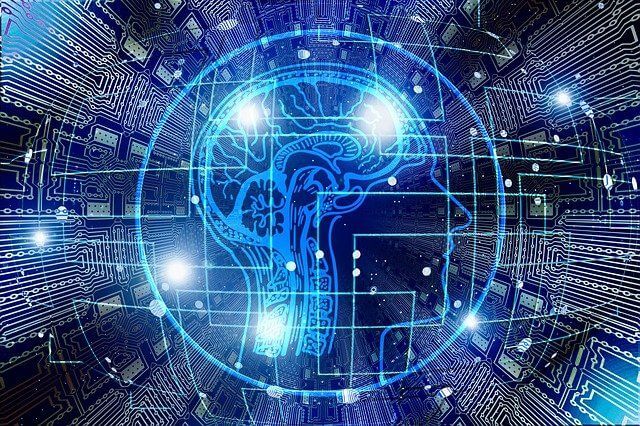Brain cells communicate using a web of synapses. Nerve cells have both pre- and post-synaptic receivers. These allow nerve cells to communicate with other cells through chemical signal molecules. These molecules are neurotransmitters that travel through the small spaces between cells. When several neurotransmitters are attached to a cell, they can relay a signal to the next cell by passing it through the small gap between them. Basically, cells communicate via a chain reaction. The message activates the receptor, or receiving cells. After neurotransmitters deliver the message, enzymes clean up nerve cells so they don’t stay permanently activated. Neurotransmitters are then reabsorbed into the body or destroyed.
Amino acids play a crucial role in the body and are precursors to neurotransmitters. Aromatic amino acids are precursors for neurotransmitters such as Serotonin, Dopamine, and norepinephrine. Branched-chain amino acids valine, isoleucine, and leucine contain data that help rebuild the brain after an injury.
Neurotransmitters in the brain are responsible for energy levels, mood, learning ability, memory function, and more. If the neurotransmitters are unbalanced, the brain cannot function properly, which compromises the body’s well-being. Amino acids help stabilize neurotransmitters, which makes them essential to the brain as well as mental health. If the body does not consume enough amino acids for neurotransmitter balance, it can lead to various health problems, including increasing feelings of anxiety and depression.
How Alcohol Affects Neurotransmitters
Under normal conditions, the excitatory and inhibitory neurotransmissions in the brain are well-balanced. Short-term alcohol use depresses brain function because it alters this balance. Exposure to alcohol increases inhibitory neurotransmission (GABA, adenosine, glycine) and/or decreases excitatory neurotransmission (glutamate, aspartate). This imbalance is what causes signs of intoxication, such as memory loss, drowsiness, moodiness, and reduced attention spans.
Alcohol consumption can have a sedative effect because it reduces excitatory neurotransmission. The primary excitatory neurotransmitters in the brain are found in the amino acids glutamate and aspartate. Several neuromodulatory and neurotransmitter systems work together to control complex brain functions like alertness, consciousness, learning, and memory. Alcohol disrupts the balance of neurotransmitter communication in the brain, which lessens its functions and affects these functions. Long-term alcohol consumption decreases the sensitivity to neurotransmission. The brain tries to compensate for the loss of communication. The result is the development of alcohol-related behaviors such as tolerance. The neurotransmitter receptors begin to be resistant to the short-term effects of alcohol.
Alcohol affects numerous neurotransmitter systems in the brain. Normal brain function relies on the delicate balance of excitatory and inhibitory neurotransmission. Alcohol consumption causes alterations in this balance.
Can You Restore Neurotransmitter Balance?
In short, yes. There are some key ways to help restore neurotransmitter balance. Using amino acids for neurotransmitter balance is effective. Specific amino acids manufacture neurotransmitters. Protein-rich foods are one natural source of amino acids. But using amino acid supplements naturally helps restore and optimize neurotransmitter balance. Finding that balance can be key for eliminating or complementing the use of anti-depressants to counter the effects of imbalance. Supportive amino acid supplements typically work to restore neurotransmitter balance quickly and can lead to permanent change.
Try These Amino Acids for Neurotransmitter Balance
Subtle changes in your dietary intake are not enough to restore neurotransmitter balance. Supplementing particular amino acids for neurotransmitter balance is more effective. Even though the body contains over 100 known neurotransmitters, just a few of them do most of the work. When amino acids are not balanced, neurotransmitters can be imbalanced as well. Dopamine, Serotonin, Norepinephrine, and GABA can be out of balance and wreak havoc in the body. To achieve the right balance of neurotransmitters, you’ll want to consume crucial amino acids like GABA, D-Phenylalanine (DPA), 5HTP/L-T\Tryptophan, SAMe, L-Glutamine, and L-Tyrosine to support brain function and restore neurotransmitter balance.
GABA (Gamma Amino Butyric Acid)
GABA is a neurotransmitter as well as an amino acid. It is useful for helping to curb the symptoms associated with alcohol withdrawal.GABA offers fast synaptic transmission and is a counterbalance for norepinephrine. Action is both inhibitory and excitatory. However, when used alone, it can cause anxiety or agitation. GABA is most effective when it is taken along with inositol, glycine, taurine, and other calming agents.
DPA (D-Phenylalanine)
DPA is a synthetic amino acid. This supplement helps raise endorphins. It helps bring emotions back into balance and reduces negative feelings. When dealing with negative emotions or feelings, people tend to try to self-medicate for comfort. DPA, along with other amino acids, helps to reduce cravings and anxiety. It’s also great for boosting your mood.
5HTP/L-T/Tryptophan
These amino acids are beneficial for reducing agitation, phobias, anxiety, panic, and obsessive thinking. They support the neurotransmitter Serotonin, which helps reduce cravings. When Serotonin is imbalanced in the brain, anxiety, depression, overwhelm, worry, and shame become issues. Tryptophan and 5HTP are useful amino acids when someone is withdrawing from cannabis, ecstasy, and alcohol.
SAMe
The body makes the amino acid SAMe (S-Adenosyl-L-methionine). It is made in the liver from methionine, an amino acid in foods. It is useful for regulating key functions in living cells. SAMe is used throughout the body in a chemical process called methylation, which is essential to many of the chemical reactions in the body. This is one of the last steps for producing the brain chemicals norepinephrine, dopamine, and Serotonin.
L-Glutamine
L-Glutamine is an amino acid that provides support for energy metabolism in the brain. It can help reduce symptoms of low blood sugar and reduce cravings for addictive substances, including alcohol. Additionally, it supports liver function and has an anti-inflammatory effect.
L-Tyrosine
L-Tyrosine is an amino acid that supports two neurotransmitters, Norepinephrine and Dopamine. It’s useful for increasing energy, resilience, and focus. It is often used to counter the side effects of withdrawing from stimulant drugs.
If you are ready to use amino acids for neurotransmitter balance, it’s important to have a well-balanced formula that includes key amino acids. BioRebalance Restore is specially formulated and contains the right balance of nutrients to help restore neurotransmitter balance, boost moods, and support the brain and liver.
Dr. Rebeca Eriksen, PhD MSc BSc (Hons) RD, is the Co-Founder at BioRebalance. She has a PhD in Nutritional Genetics from Imperial College London, and over ten years of clinical experience designing custom nutritional repair regimens for patients recovering from alcohol addiction and other disorders.
-
Dr. Rebeca Eriksenhttps://biorebalance.com/author/dr-rebeca-eriksen/
-
Dr. Rebeca Eriksenhttps://biorebalance.com/author/dr-rebeca-eriksen/
-
Dr. Rebeca Eriksenhttps://biorebalance.com/author/dr-rebeca-eriksen/
-
Dr. Rebeca Eriksenhttps://biorebalance.com/author/dr-rebeca-eriksen/

